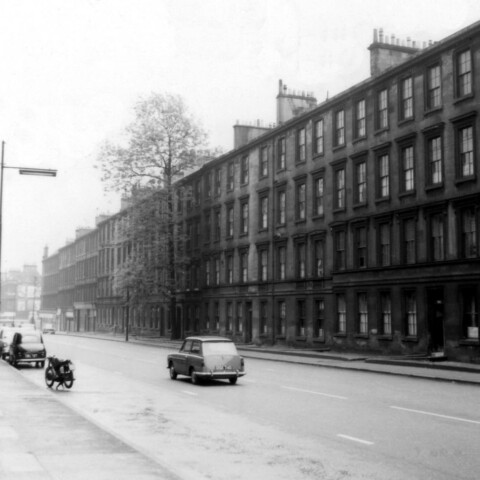Witchdoctor Rating
-
- 7/107/10
Summary
Pacific Heights – A Lost Light (Warner Music)
Auditioned on TIDAL Hi-Fi
Devin Abrams’ last album as Pacific Heights won him the electronic music category at the NZ Music Awards. Its follow-up is a – wait for it! – concept album, explains GARY STEEL.
 If I hadn’t read about it subsequently, I wouldn’t have known that A Lost Light is a concept album about voyaging from England to New Zealand in the 18th Century. Part of that is down to many of the lyrics being emoted in such a way that it’s really hard to hear what’s being sung about, and to be honest, the relentlessly dark and brooding nature of the thing made me think it was more or less a re-run of the relentless downer seriousness that pervaded The Stillness, its 2016 predecessor.
If I hadn’t read about it subsequently, I wouldn’t have known that A Lost Light is a concept album about voyaging from England to New Zealand in the 18th Century. Part of that is down to many of the lyrics being emoted in such a way that it’s really hard to hear what’s being sung about, and to be honest, the relentlessly dark and brooding nature of the thing made me think it was more or less a re-run of the relentless downer seriousness that pervaded The Stillness, its 2016 predecessor.
The abject absence of light and levity makes it a very cohesive mood piece, but it sacrifices some of its sense of life and energy in the process. Which is a pity, because A Lost Light is the work of a gifted individual who fully embraces contemporary technology to craft a work that’s quite distinct from everything around it, if not entirely unique.
In fact, you could trace Devin Abrams’ style back to the turn of the century when Boards Of Canada brilliantly humanised electronic music, and the hundreds of subsequent laptop composers who then took to exploring that territory, including the wave of dream-pop that followed. There’s an intersection here as well with Icelandic post-rock balladeers Sigur Ros, too.
 But it’s the pianistic repetitions of classical minimalist Steve Reich that are evoked on the opening track, ‘The Greystone’, before its submerged rhythms break out and the thing blows up into ghostly groove with a minor key textural ambience that Cocteau Twins admirers will embrace, and a brief, swelling Glo- stick moment straight out of the Book Of Coldplay.
But it’s the pianistic repetitions of classical minimalist Steve Reich that are evoked on the opening track, ‘The Greystone’, before its submerged rhythms break out and the thing blows up into ghostly groove with a minor key textural ambience that Cocteau Twins admirers will embrace, and a brief, swelling Glo- stick moment straight out of the Book Of Coldplay.
These brief anthemic moments can be found dotted through A Lost Light like tiny traces of Abrams’ previous group, the stadium-friendly Shapeshifter. I guess it’s inevitable that he feels the need to rev these mostly sad and dark songs up but it’s a bit like having a quick ejaculate in the middle of a funeral service.
There’s a formula to the album that is adhered to on each of the 10 songs, but there’s enough sonic variety to keep the listener hooked. The instrumental textures and sounds of the sea create a mood throughout that’s mournful, dark and gloomy, while guest vocalists like Neil MacLeod (featured on three tracks), Julia Catherine Parr and Joe Dukie of Fat Freddy’s Drop add an overtly soulful touch. Speaking of which, I’m not entirely convinced by the Dukie-featured single, ‘The End Is In Sight’, mainly because his voice somehow seems at odds with the music; but then again, perhaps Abrams’ intended that sense of dislocation.
 Elsewhere, however, everything is perfectly rendered, and from a technical standpoint, one suspects that A Lost Light is something of a triumph. Certainly, a great deal of care has been taken all the way through the process, from the deft way in which the sounds are painted to the very shiny, perfect sonic engineering. The beats (when they are sparingly applied) burst through with such clarity that they’re like sunlight on a ship’s prow, and the deep, throbbing bass that occurs a few times feels virtually bottomless.
Elsewhere, however, everything is perfectly rendered, and from a technical standpoint, one suspects that A Lost Light is something of a triumph. Certainly, a great deal of care has been taken all the way through the process, from the deft way in which the sounds are painted to the very shiny, perfect sonic engineering. The beats (when they are sparingly applied) burst through with such clarity that they’re like sunlight on a ship’s prow, and the deep, throbbing bass that occurs a few times feels virtually bottomless.
There’s much to like and enjoy about A Lost Light, especially from a sonic and compositional point of view, and mostly, its selection of vocalists are deftly integrated. What lets it down for me is its sense of self-importance and the insistent gloom. I’m sure that for settlers taking to the waters for a potentially perilous journey from England to a strange new land back in the 1800s there would have been a lot to feel gloomy about, but there must have been tremendous resilience and optimism, too, as well as the humour to get them through. That’s precisely where the album loses its way, because it never conveys that optimism.















